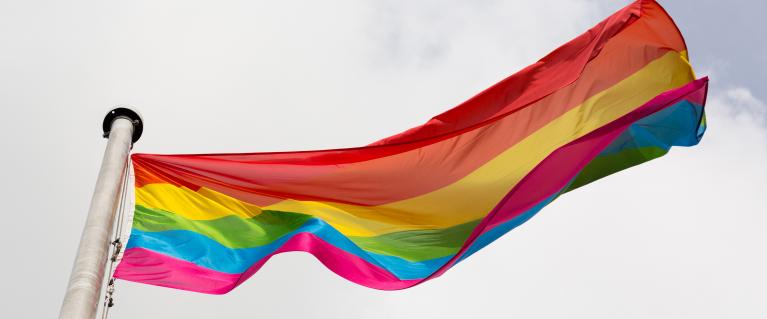
Lesbian, gay, bisexual and transgender
London is home to a large lesbian, gay, bi and trans (LGBTQ+) community. LGBTQ+ people make a major contribution to our economy and culture, helping make London one of the most exciting cities in the world.
Supporting LGBTQ+ rights
The Mayor is a vocal supporter of LGBTQ+ Londoners’ rights and has worked against homophobic, biphobic, and transphobic exclusion and disadvantage.
The Mayor believes that we must continue to build strong, connected communities and ensure that every Londoner can share in the prosperity of our city. To achieve this, the Mayor has published Inclusive London, his equality, diversity, and inclusion strategy for London.
Working with the LGBTQ+ community
The Mayor wants to make sure that the LGBTQ+ community keeps playing a vital role in London's economy, culture and society.
Since he was elected the Mayor has highlighted the issue of rising homophobic, biphobic, and transphobic hate crime, worked to protect declining numbers of LGBTQ+ venues, and reintroduced a community Pride reception at City Hall to recognise the achievements of the LGBTQ+ community.
The Mayor also supports important LGBTQ+ community events like Pride in London and the BFI Flare: London LGBT Film Festival.
Pride in London is the UK’s largest LGBTQ+ cultural festival with an annual crowd of around 500,000. Activities include a central London parade from Oxford Street to Whitehall, a major event on Trafalgar Square, and more activities in Leicester Square and Soho.
Stopping homophobic, biphobic, and transphobic hate crime
Homophobic and biphobic hate crime is a criminal offence which is felt (by the victim or anyone else) to come from the offender’s anger towards the victim’s sexual orientation (or what the offender thinks the victim’s sexual orientation is).
Transphobic hate crime is a criminal offence which is felt (by the victim or anyone else) to come from the offender’s anger towards the victim’s gender identity (or what the offender thinks the victim’s gender identity is).
In April 2017 the Mayor launched a new police unit – the first of its kind in the UK - to help tackle online hate crime and improve support for victims across the capital. It forms part of his manifesto commitment to ensure a zero-tolerance approach to hate crime of all forms.
Five dedicated Met police officers, led by a Detective Inspector, make up the new Online Hate Crime Hub, which aims to improve the police response to online hate by gathering intelligence, improving understanding and testing new investigation methods.
Working with community groups, social media organisations, academic hate crime specialists and criminal justice partners, these specially recruited and trained officers will help to identify, prevent and investigate these crimes, including abuse on Twitter and Facebook.
The Mayor is also a strong supporter of LGBTQ+ Police Liaison Officers and how they build confidence with the LGBTQ+ community
MOPAC and the Metropolitan Police Service (MPS) have a statutory duty to make sure that all hate crimes are dealt with properly. They are working closely with criminal justice organisations to make sure that dealing with hate crime is a priority across London.
More crimes reported: the number of homophobic hate crimes reported has gone up. But we will keep working to make sure that LGBTQ+ people feel confident reporting hate crime to the MPS and to LGBTQ+ liaison officers.
If you need to report a homophobic, biphobic, or transphobic hate crime you can speak in confidence to Galop, London’s leading anti-LGBTQ+ hate crime charity. They also provide support and advice.
Read the Mayor’s Police and Crime Plan for London (2017-2021).
Reform of the Gender Recognition Act (2004)
The Government consultation on reform of the Gender Recognition Act 2004 closed on 21 October 2018. The Gender Recognition Act 2004 governs how trans people can have their identity legally recognised.
The Mayor of London’s response to this consultation process can be accessed here.
Need a document on this page in an accessible format?
If you use assistive technology (such as a screen reader) and need a version of a PDF or other document on this page in a more accessible format, please get in touch via our online form and tell us which format you need.
It will also help us if you tell us which assistive technology you use. We’ll consider your request and get back to you in 5 working days.